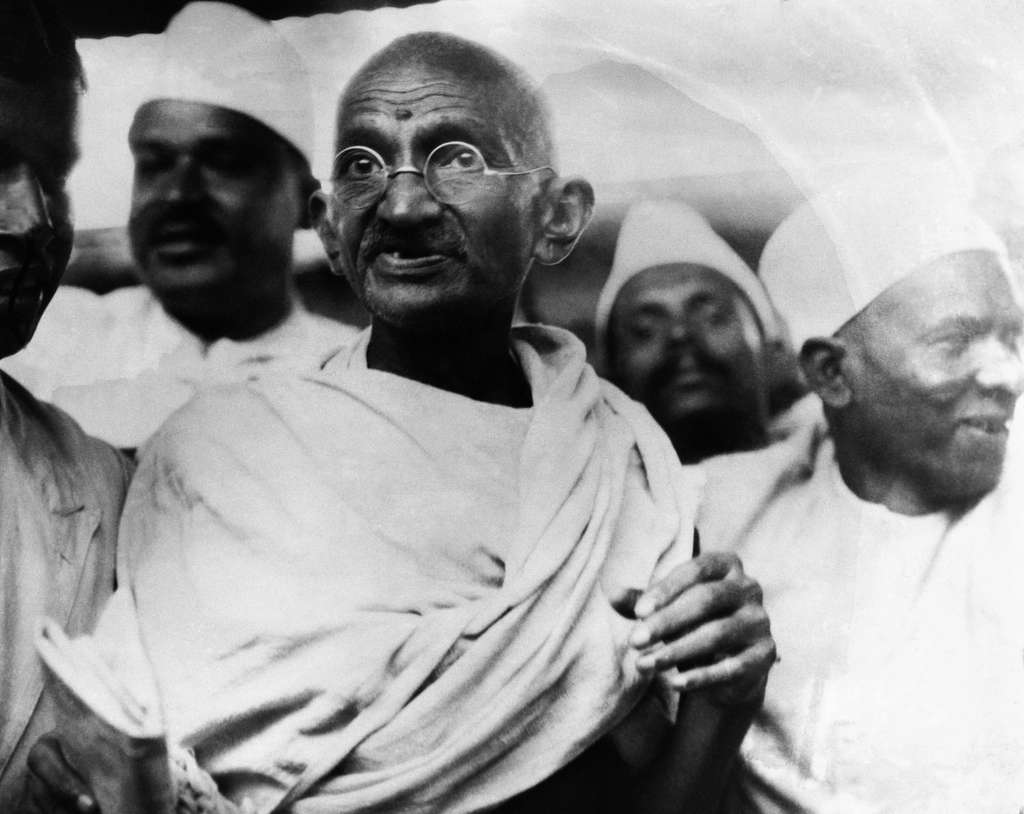“Be the change that you wish to see in the world.”

The quote “Be the change that you wish to see in the world” is often attributed to Mahatma Gandhi, and it encapsulates his philosophy of personal responsibility and the transformative power of individual actions. Here’s a more detailed explanation:
Gandhi’s philosophy, often referred to as Gandhian philosophy or Gandhism, emphasized the idea of ‘Satyagraha,’ which translates to ‘truth force’ or ‘soul force.’ Gandhi believed in the concept of nonviolent resistance as a means to achieve social and political change. The quote reflects Gandhi’s conviction that individuals should embody the values and principles they want to see prevail in the world.
In essence, Gandhi was urging people to take personal responsibility for the state of the world and to live according to the principles they espouse. If one desires a more just, compassionate, or peaceful world, Gandhi believed that the path to achieving this begins with one’s own actions and choices.
This quote is often used to inspire individuals to examine their own behavior, attitudes, and values. Rather than waiting for external circumstances to change, Gandhi encouraged people to initiate the change they wanted to see by embodying those ideals in their daily lives. It reflects the belief that individual actions can have a ripple effect, influencing others and contributing to broader societal transformation.
Gandhi himself was a living example of this philosophy. His commitment to nonviolence, simplicity, and truth became a guiding light for the Indian independence movement and inspired civil rights movements and leaders around the world.

- Context of the Quote: This quote is believed to have originated from Gandhi’s philosophy of nonviolent resistance and his deep conviction that personal transformation is intrinsically linked to societal change. Gandhi was a key figure in India’s struggle for independence from British rule, and his principles of nonviolence and civil disobedience played a pivotal role in the movement.
- Gandhi’s Philosophy – Satyagraha: Gandhi’s philosophy of Satyagraha, or the pursuit of truth through nonviolent resistance, underlies the quote. He believed that individuals have the power to influence and change society through their actions. By living in accordance with one’s principles and ideals, one contributes to the collective progress of humanity.
- Individual Responsibility: The quote underscores the idea of individual responsibility for the state of the world. Instead of blaming external circumstances or others, Gandhi encouraged people to introspect and embody the values they wished to see prevail. This reflects a proactive approach to social change, emphasizing personal agency.
- Nonviolence and Compassion: Gandhi’s advocacy for nonviolence is implicit in the quote. The change he envisioned was not merely political but also ethical and moral. By choosing nonviolence, individuals contribute to a world marked by compassion, understanding, and peaceful coexistence.
- Inspiration for Social Movements: Beyond its immediate application to personal conduct, the quote has served as inspiration for various social and civil rights movements globally. Leaders such as Martin Luther King Jr. drew on Gandhi’s philosophy, applying the principles of nonviolence and personal responsibility in their quests for justice and equality.
- Legacy and Global Impact: Gandhi’s message has transcended time and borders, resonating with people across cultures and generations. The quote continues to be cited in discussions about social change, activism, and the role of the individual in shaping the world.
The quote encapsulates Gandhi’s belief in the transformative power of individual actions, emphasizing that positive change in the world begins with the choices and behaviors of each person. It remains a timeless and universal call to introspection, personal growth, and active engagement in creating a better world. In summary, “Be the change that you wish to see in the world” is a call to personal accountability and a reminder that positive change begins at the individual level, with each person taking responsibility for the values they uphold in their own lives.


